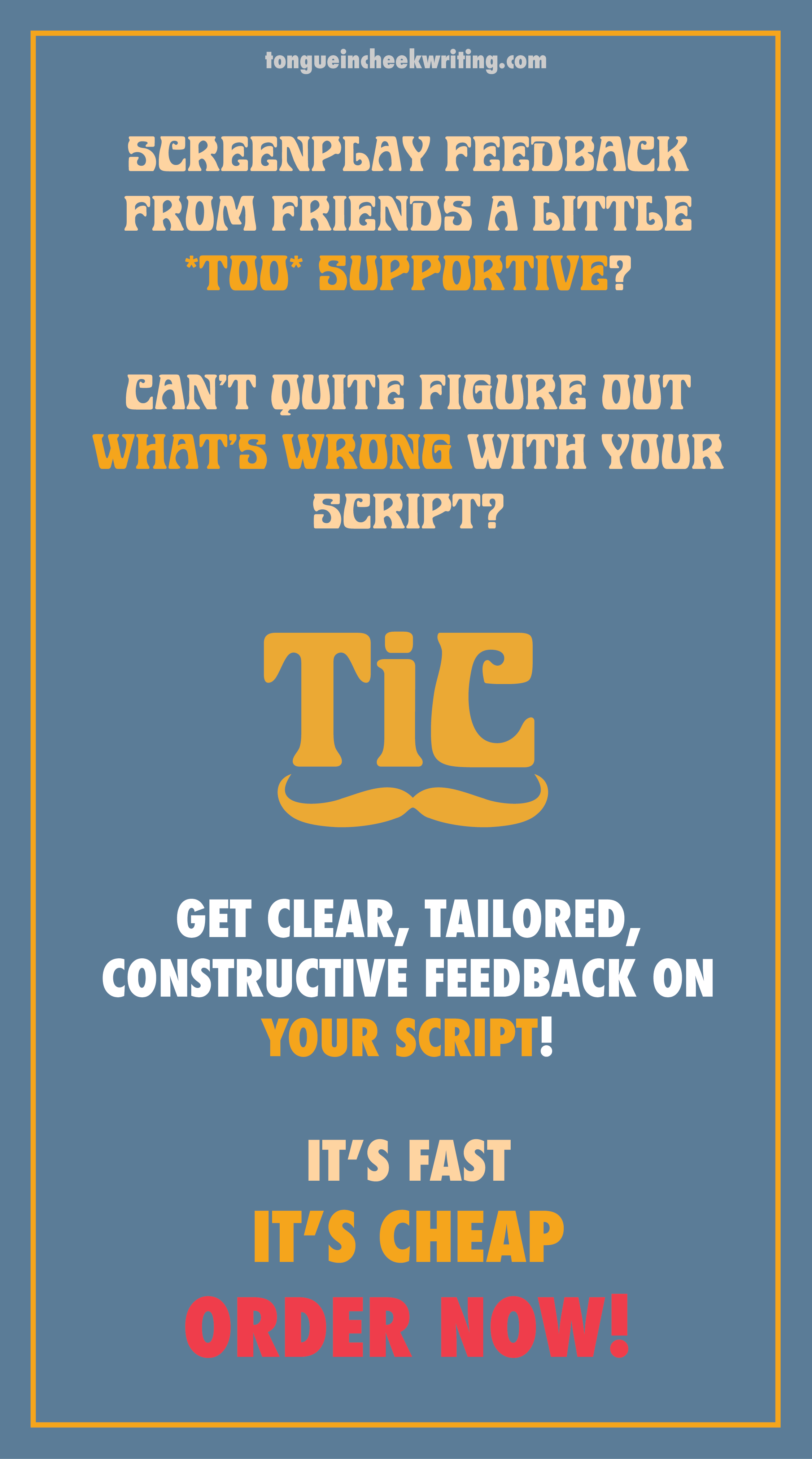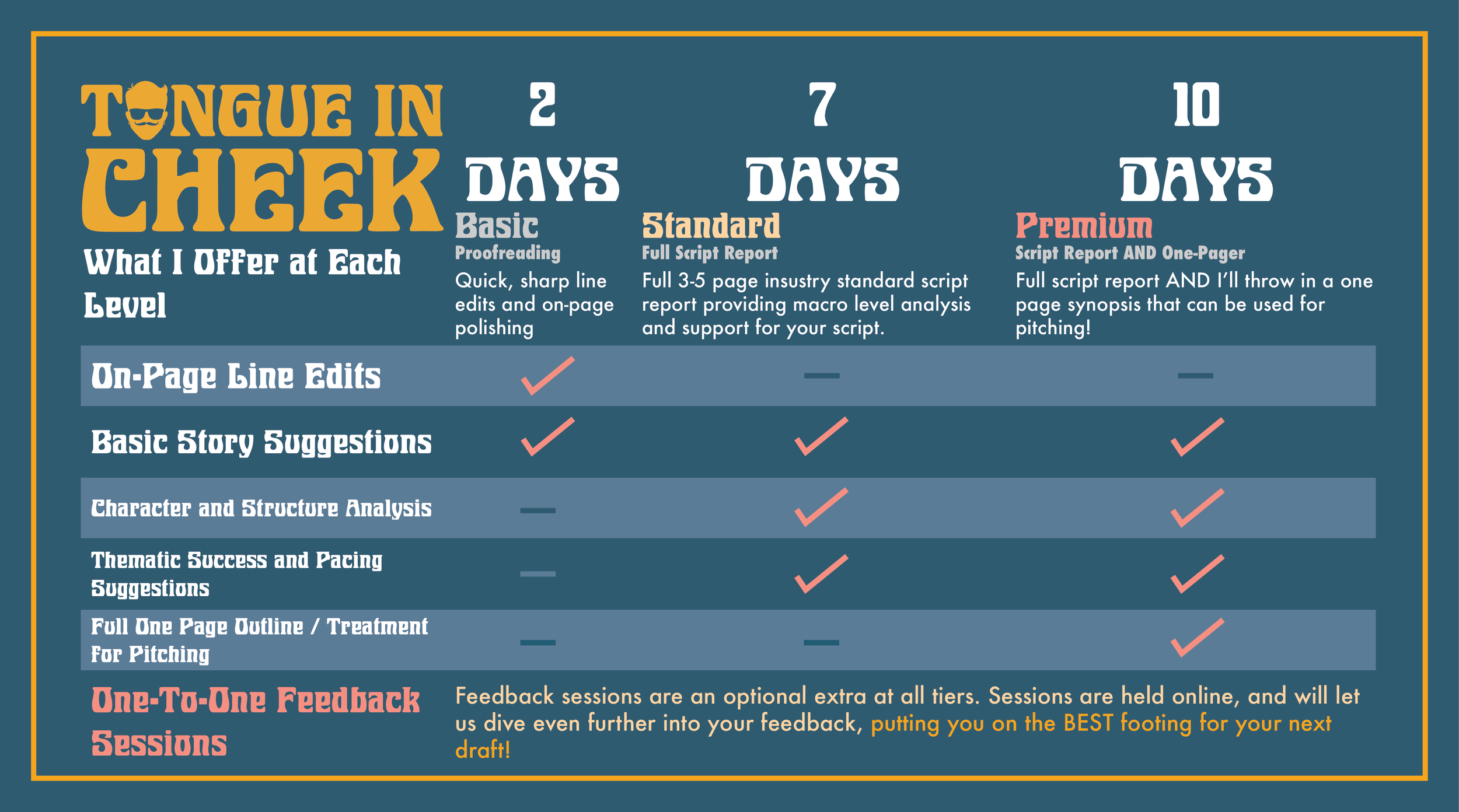3 Pages or 10? How Many Pages Should it Take to Hook a Reader?
Is it true that producers and readers will only read the first ten pages of a script submission? Why do John August and Craig Maizin do the three page challenge on their podcast, Scriptnotes? What if it takes twenty pages for your story to get going?
The deadline for the BBC Writers’ Open Call is looming, and you’re probably panicking. You’re checking every craft book there is, consulting every musing you’ve had, and every note you’ve been given to try and make your submission the best out of thousands.
Because of that panic, you’re probably focusing on tuning, finessing, and ironing those first few pages into a crisp, clean masterpiece.
Well, today I’ll be revealing the truth about those opening pages and how many it really takes for a producer or reader to get hooked.
Three Pages
Personally, I love and hate the three-page challenge on the Scriptnotes podcast. I love it because I’m listening to absolute gold dust of feedback from two of Hollywood’s best writers. I love it because John and Craig will sometimes disagree on a note, proving to at least some degree that all writers are relying on the taste of the reader. And I love it because they talk about the whole writing practice while discussing only three pages and a synopsis.
I hate it because a recurring note that comes up is how they’re not “getting” the synopsis from the first few pages. I get it, but the artist in me is crying out that a full length script can’t be fully revealed in its first three pages! They’re not talking about plot, obviously. Often they’re critiquing the tone of the piece and the confidence of the writer in their craft.
In the first three pages, John and Craig often look for:
Worldbuilding clues
At least one protagonist
Idea of tone
Setting the stakes
But they’re also looking for one other thing…
Ten Pages
The most common superstition when it comes to longform scriptwriting is that producers and readers will only read the first ten pages. If they like it, they read on. If they don’t, then you get a generic email about high volumes of submissions and that feedback can’t be given to everyone.
Maybe it’s true. Maybe it isn’t. The point is that everyone believes it’s true, and it’s defining a generation of writing.
The things writers tend to focus on in their first ten pages are:
Introducing key players and relationships
Worldbuilding
Setting the stakes
Defining the core conflict
The Inciting Incident
Formatting
Tight, visual action lines
Strong, purposeful, character driven dialogue
And all of those things are important. But they’re not the most important thing…
The Truth
Here it is. The thing that all readers are looking for. You should know it; you’re all readers too. Every producer and reader on the planet are looking for:
Voice
Confidence
Craft
You don’t want a reader to open your script and have your writing degrees radiate off the page, nor do you want to whack them with amateur formatting. It’s a tricky balancing act, but one thing every reader in the world can do is spot an amateur. It’s often found in the clinical sheen that writers put on their work during the final pass. A lack of confidence and a perusal of the ‘formatting handbook’ causing irreparable damage to what could have been a serviceable script!
That confidence takes time, and practice. Each script you write will teach you more about what works for you and what doesn’t. The script you’re on now may teach you how to write compelling dialogue, but ultimately falls down structurally. Your next script may allow you to play with formatting, but be thematically wobbly.
Slowly (or fast, depending on your writing speed), you’ll accumulate all the skills to make you a great writer. When you do, readers will notice.
And the most horrible truth of all? They could always see it. If you read some of your old work, you can probably pinpoint exactly what needed to be fixed. If you’ve been at this for a long time, someone probably told you what it was at the time. But did you listen?
Of course you didn’t, what do they know!
So, when you apply for these open calls, these wide competitions that are entered by hundreds or thousands of applicants each year remember:
Whoever picks up your script doesn’t give two shits what it’s about. The only way they’re going to want to read past page three is if they feel they’re in safe hands. Once they see that, the sky is the limit!
Of course, if you do want help getting nudged in the direction of reading like a confident writer, you could always head over to my Fiverr page and let me have a look for you. It’s cheap as chips but worth its weight in gold. Or, you know… don’t hire me.
“Unfortunately, due to the volume of submissions, we aren’t able to offer feedback to everyone.”
Happy submitting!


